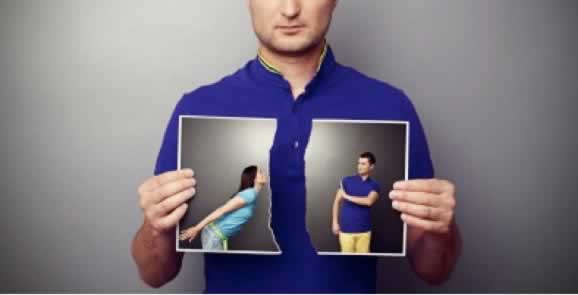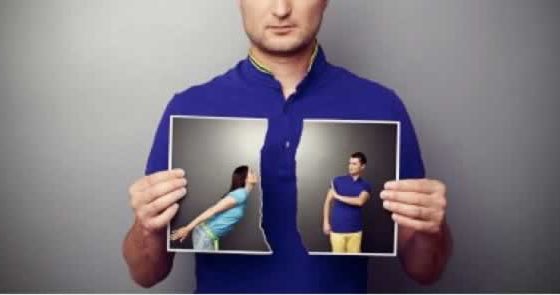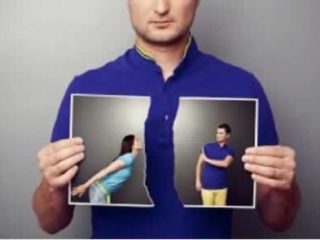An Interview With Dr. Archibald Hart.
Divorce devastates children. But how exactly does divorce hurt children and what can be done to help them? To answer these questions, we met with Dr. Archibald Hart, author of Children and Divorce and dean of the Graduate School of Psychology at Fuller Theological Seminary. In this powerful and insightful interview, Dr. Hart explains what children of divorce go through and what parents should and should not do to help them.
Dr. Hart, please describe your own experience regarding divorce.
HART: My parents divorced when I was twelve. But from my earliest years, I knew that their marriage was in trouble. We were very unhappy. A lot of fighting, a lot of anger. But despite how bad the experience was in the home, it-the divorce of my parents-really did affect me deeply.
Divorce negatively affects most children. How does this happen?
HART: I’m convinced that divorce has a very negative affect on children for several reasons. There is the breakdown of a family structure right at the critical time when a child is developing. Right when they need support with a strong, warm, and a loving environment, everything goes to pieces. There is the separation of the parents. There is also the loss of friends and support because most children who go through divorce end up having to move or go somewhere else. Divorce represents a loss as serious, in my opinion, as the death of someone in the family.
As it relates to children, does age make any difference in their reaction?
HART: Research is clear that boys around age twelve are the most seriously affected by divorce. This stands to reason because if a divorce happens earlier than that, you’re not really aware of what’s going on. Later than that, you have the resources and the ability to cope with what’s going on. But age twelve is a cross-over point. You are right in the middle. You are maximally aware of what is going on but you have minimal resources to deal with it.
For children at that age, what kind of damage would you see?
HART: At age twelve, the most damaging consequence for boys particularly is that they become depressed. They experience depression in a very deep way. And later on when you look back at adults whose parents divorced when they were age twelve, they are often very depression prone. They are really sensitive to loss. Every time they experience a loss in life, they respond to it with an exaggerated response.
Let’s back up now for those parents who have toddlers. How would a toddler respond? Are there any signs of concern in that age group?
HART: Yes, young toddlers, before they are aware of what is going on, don’t have much reaction. As long as the mother continues to be present and as long as there’s not a lot of separation, small children don’t suffer many consequences.
As you move up in age, though, from two to five, these children tend to regress and go back to earlier modes of behavior. A child who is potty trained may suddenly go back to not being trained. They want to be fed. They want to behave like little babies. This could be very aggravating for parents who have to put up with that.
Then the next stage, maybe from age six to just before puberty, the most significant reaction is one of anxiety. Children experience a tremendous amount of anxiety. They’re afraid of what is happening. They don’t have the skills to know how they can survive. They don’t know-they don’t understand anything. And especially when parents don’t keep them adequately informed, they imagine all sorts of horrible things.
Is there any difference in reaction between boys and girls?
HART: Boys suffer more seriously from divorce; girls suffer more seriously from remarriage. That’s an interesting difference between the sexes. Boys don’t handle divorce well because we don’t teach boys to handle their feelings. They have to be strong. They’re sissies if they cry. They’re not allowed to show their fears. They’re not allowed to talk about anything. They’ve got to hold it all in. And we believe this is one of the reasons why, in our culture, boys are more damaged by divorce than girls.
From the child’s standpoint, apart from any evaluation of the rightness or wrongness of divorce, does the way parents handle the divorce have any impact, positively or negatively, on the kids?
HART: It is absolutely crucial. Parents going through it in the healthiest possible way are giving their children the best resource they need in order to cope with that divorce. In other words, I’m saying that the healthier the adjustment of the parents going through the divorce, the healthier the adjustment of the children will be who also go through that experience.
We often hear parents say: “It’s better for the kids if we go ahead and get a divorce. Living together is harder on the kids than if we split apart.” Is that true?
HART: There is very little truth to that statement. I can understand when you have a very abusive father, an extremely emotionally ill mother, or extreme circumstances in which separation or divorce may be justified in order to protect children. But the majority of divorces are not in that category. To use that as an excuse to get a divorce just isn’t reality. In fact, divorce is always damaging no matter what the reasons are.
In print you have stated that parents need to heal themselves in order to help the kids. Why is that necessary?
HART: Because it is out of your own healthiness that you can deal with your children. If you’re not focusing on your own recovery, if you’re not dealing with your own emotions, you don’t have the resources. You’re too absent. You’re too focused on yourself. You’re too self-centered. Children need attention. They need to talk about their feelings. How can [your children] talk to you about their feelings when you are so sensitive that any time they talk about what they’re feeling, you get angry or upset? So your own healing is the best protection you can give to your children.
Talk about some of the mistakes parents make going through the divorce process especially as it relates to affecting their kids.
HART: I think the first mistake parents often make is to blame themselves too much. They condemn themselves. They feel very guilty. I’d say to parents who are going through divorce, “Get over the forgiveness stage as quickly as you can. Ask God for forgiveness and then get on with the business that is at hand.”
The second mistake you can make is to not give the departing parent adequate access to the children. Many, very often out of hostility or anger, try to prevent access by the other parent. That is very damaging to the children. The children desperately need to know that they will have continuous contact with the departing parent.
What are some other mistakes parents make?
HART: I think that making changes too quickly is a big mistake. Children need time to make adjustments, particularly children between ages five and fourteen. So changing things slowly is a good rule. If you are going to separate and divorce, then perhaps let them stay in the home and make some adjustments before you move to the next stage which may be moving to a new home or new city or new school. So change things slowly. That’s an important principle.
Any other mistakes you see parents making?
HART: Yes. Forcing children to make choices. “Choose whether you are going to be with your father or with me.” That’s not good. Little children are not capable of making those choices. Another mistake is making promises you can’t keep. Fathers, often out of guilt, make all sorts of promises. “Next year, boy, I’m going to take you to Florida, and we’re going to Disneyland.” You say you’re going to do this and that and make all sorts of promises that you know you can’t keep. You make those promises to appease your own guilt. But your children will one day hold you accountable for those promises.
What kind of feelings do the children have as their parents go through a divorce?
HART: Fear and anxiety are the most important ones. The breakup of a home creates a tremendous amount of anxiety for children. They’re afraid of the future. They don’t know what it holds. They don’t have the perspective that parents have.
Fear and anxiety then give way to anger and hostility. And what fascinates me is that children, particularly older children, turn on the mother and blame her whether she is the guilty party or not. I think that’s because she’s the safest one that they can take their anger out on. She’s a scapegoat. They can’t go tell their father exactly what they feel, so they turn to the mother and the mother gets that anger and hostility.
So the mom who has tried everything can still see her kids turn on her?
HART: Exactly. They will blame her. My encouragement is just accept that. They need to vent their anger, so don’t take it so personally.
The next stage is that anger then gives way to depression. There is loss, sadness, terrible feelings of abandonment. All children going through divorce will go through a period of grief, and one should help the children in that grief process. A parent who turns to a child and says, “Stop crying now! Stop being so upset!” is not being fair to that child. That child is grieving. That child needs to cry. And you need to allow that to happen.
Originally seen at ChurchInitiative.org.
Copyright © 2003 by the author and/or CaringChurches.com and The Church Initiative, Inc. unless noted otherwise in the text of the article above. Used with permission.
Dr. Archibald Hart is author of Dark Clouds, Silver Linings and Children and Divorce. He serves as dean of the Graduate School of Psychology, Fuller Theological Seminary in Pasadena, California. He is also a popular speaker and teacher at retreats, seminars, and pastors’ conferences.







